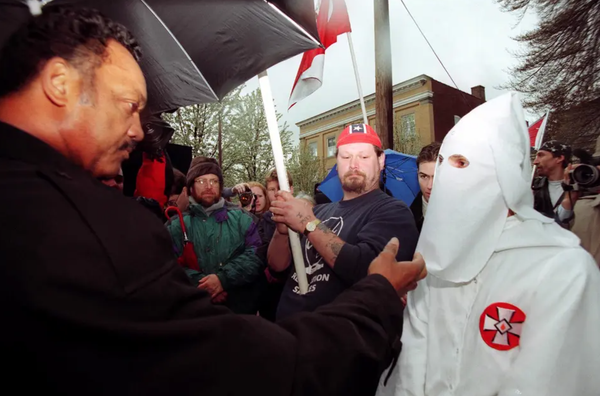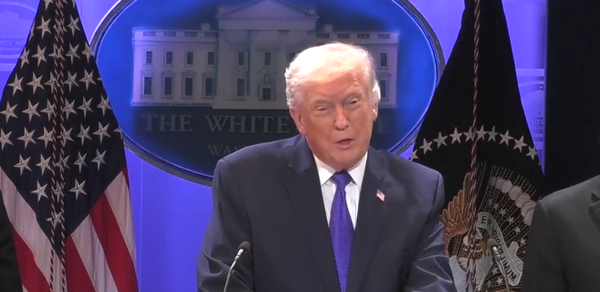Abortion Isn't a 'Women's Issue'
Bans on it are "the most vivid sign of the erosion of liberal democracy.”

Editor’s note
Today’s Editorial Board goes out to everyone.
If you missed previous editions, now’s the time to subscribe!
Many thanks! —JS
I’m going to offer a thesis that’s familiar and (perhaps) unfamiliar.
The familiar part: that anti-abortionists do not seek to protect the rights of “the unborn.” They seek control of women and what they choose to do with their own bodies.
Now the second, perhaps unfamiliar part: that seeking control of women and what they choose to do with their own bodies is a quintessentially fascist tactic.
How do we know the first part? Well, in addition to library shelves heaving with the works of feminist, LGBTQ and liberal scholars over a half century, we may enter into evidence one of the latest anti-abortion laws. This one is from Alabama.
The new law bans abortions in the state. It provides two exceptions. There is no exception for rape. Nor is there one for incest. These were limits to past anti-abortion bills, but no longer. The law concerns the mother only if her life is in danger.
Jason Stanley: “The politics of sexual anxiety is a powerful way to present freedom and equality as fundamental threats without explicitly appearing to reject them.”
What’s the second exception? That’s the tell.
“The law deems only fertilized eggs inside a womb worthy of protection, not ones routinely destroyed in the process of fertility treatment,” wrote Margaret Newkirk.
“The egg in the lab doesn’t apply,” Clyde Chambliss, state senator and sponsor of the abortion bill, said during the Alabama legislative debate.
“It’s not in a woman. She’s not pregnant.”
Newkirk explained that past attempts to include fertilized eggs routinely failed.
A [failed] 2011 attempt to amend the state constitution of Mississippi so that a fertilized egg would have the same rights as a full person shocked abortion foes. … Similar so-called personhood amendments were subsequently rejected in Colorado, North Dakota, and other states. The Alabama lawmakers “recognized how potent opposition from the infertility community was and sought to avoid it.”
Let’s put this in plain English.
Lots of people in Alabama say they oppose abortion, because they believe that a fertilized egg is a person. Abortion is tantamount to murder, they say. Abortion has killed more innocent persons than the Holocaust. Yet many of the same people were and are getting in the way of state legislation that said a fertilized egg is a person.
What does this suggest? For one thing, that people who say they believe “life begins at conception” don’t really believe it. If they did believe that “life begins at conception,” they’d protect all “persons” equally, even “persons” that fertility clinics throw away.
For another, “equally” is beside the point. So is overwrought attention to hypocrisy. Hypocrisy matters only if there is a higher authority to which we agree to subordinate ourselves. Not so with fascists. There is no higher authority, because principles, values, ideals—these don’t matter. There is no hypocrisy when you are, wittingly or not, seeking power, specifically if you are seeking power for “us” and not “them.”
The US was founded on the moral of everyone deserving equal treatment. But Alabama’s new abortion law implies two unequal classes. There are two kinds of embryo, one protected and one not. There are two kinds of women, one regulated and one not. But per anti-abortionist logic, the law does more than create unequal classes.
It creates separate and unequal outcomes for the same “crime.”
The law says that for unprivileged women (poor and of color), “murder” is punishable by 99 years in jail. For privileged white women, however, “murder” is jim dandy. (Strictly speaking, the abortion ban punishes doctors who perform abortions, but that would seem to be a legal distinction without much political or moral difference.)
I don’t believe that abortion is murder any more than I believe that a glob of human cells is a person. My goal is to connect anti-abortion to fascism—to illustrate that reproductive rights are not just a “women’s issue” (though they are) but an issue vital to all. Once we understand it’s vital to all, we see that anti-abortionists do not seek only to control women. They seek to erode, combat, or subsume democracy itself.
Too much? I don’t think so. Fascists have long exploited sexual anxiety to secure greater degrees of power, according to Yale philosopher Jason Stanley, author of How Fascism Works. Anti-abortion is part of that history. The politics of sexual anxiety, Stanley writes, permits fascists to present democratic values as threats. But they can’t oppose freedom and equality openly, so they focus on “the unborn” to force women, in this case women of color, to conform to a racialized political order.
“A woman’s right to have an abortion is also an exercise in freedom,” Stanley wrote in How Fascism Works. “By representing abortion as a threat to children—and to men’s control over [women]—fascist politics impugns the liberal idea of freedom.” He added:
“The politics of sexual anxiety is a powerful way to present freedom and equality as fundamental threats without explicitly appearing to reject them. A robust presence of a politics of sexual anxiety is perhaps the most vivid sign of the erosion of liberal democracy.”
—John Stoehr




